At the age of 38, Austrian Peter Klinger has been living in China for over three years and is now the owner of a coffee and Western restaurant in Jinan, Shandong. Having worked in coffee-related roles in over 30 cities across different countries, Peter's love for Chinese culture and the city of Jinan led him to plant the seeds of his "coffee dream" in the city known for its springs.
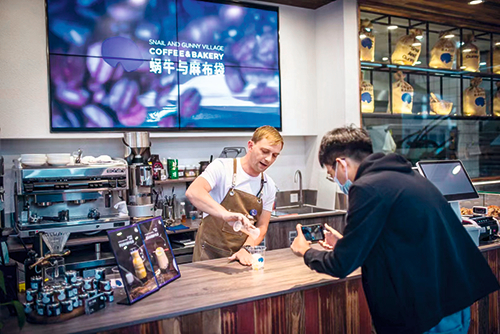
Falling in Love with Jinan
"Before I started working with coffee, I didn't even drink it that much," Peter chuckled, reminiscing about his journey. At the age of 19, Peter applied to work as an employee in a coffee roastery. Before that, he had only tasted instant coffee from the supermarket.
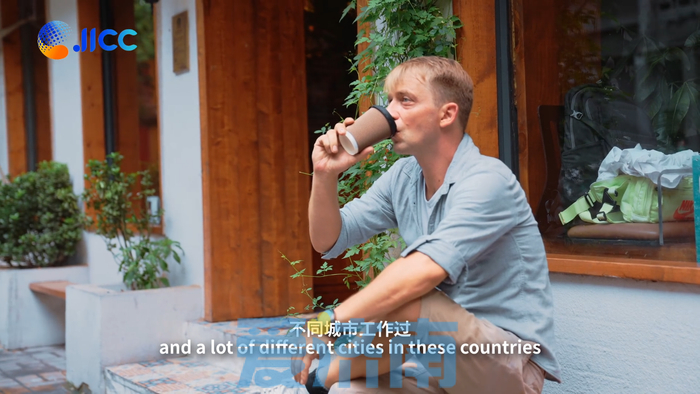
During a coffee-tasting event, Peter encountered a specialty coffee from Ethiopia called Yirgacheffe. "When hot water poured onto the coffee grounds, I smelled rich aroma, fruity notes, and floral scents. I had never thought that coffee could have such a unique fragrance! I started developing an interest in coffee and gradually delved into this field."
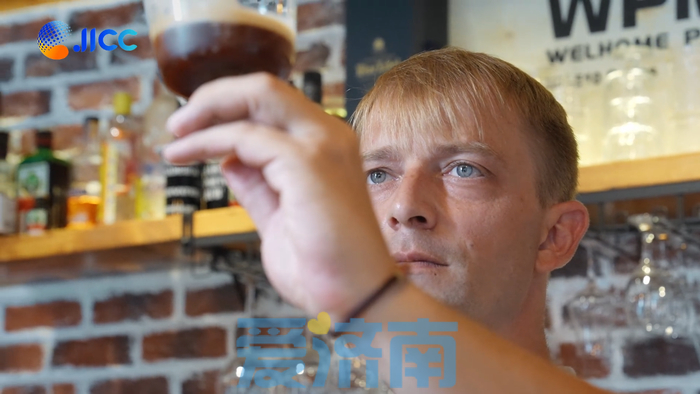
Due to his work, Peter explored coffee philosophies and cultures in different countries. As a seasoned barista, he visited various Chinese cities like Beijing, Shanghai, Guangzhou, and Qingdao before deciding to settle in Jinan.
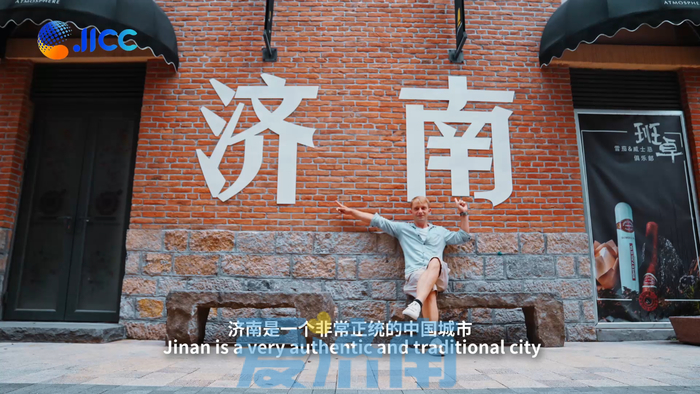
"I love Shandong, I love Jinan; here, you can feel the wonderful blend of tradition and modernity." According to Peter, Shandong's rich history and profound traditional culture, combined with the rapid development and openness of Jinan as a provincial capital, create a unique environment. The people here naturally take pride in their local culture while being open to embracing new things.
Coffee possesses a magical power, not just as a simple product but as a lifestyle, bringing people closer and bridging friendly communication between different cultures. Peter confessed, "In the end, I'm just a barista. I enjoy studying coffee roasting and different brewing systems and teaching coffee courses to make more people fall in love with coffee." This young man from Austria, carrying an inherent love for coffee, came to Shandong, China, thousands of miles away, blending coffee into the lives of the locals, creating a coffee connection between China and Austria. He hopes to bring the rich Western coffee culture to the Chinese people through his efforts.
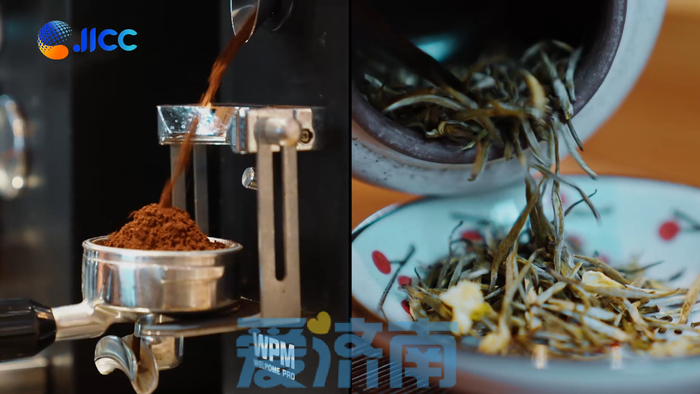
When Coffee Meets Tea
"Shandong and my hometown share many similarities, such as developed agriculture and a stable economy, providing residents with a comfortable life." Beyond the cultural differences between Austria and China, Peter prefers to look for commonalities. He believes that Austrians and Chinese share a significant commonality: a meticulous approach to work, yet an ability to enjoy life and balance work and life effectively.
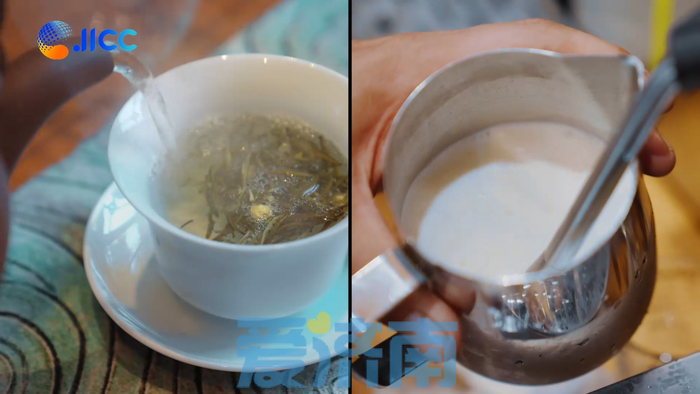
In Austria, coffeehouses are essential social spaces. A cup of coffee can spark new ideas and methods. Peter believes that Austrian coffee culture and Chinese tea culture have many similarities. During his days in Jinan, he often visited tea houses near Black Tiger Spring to “check in.” "Tea is like Chinese culture. Tasting tea is experiencing Chinese culture."
Known as the "Spring City," Jinan's local mineral-rich spring water enhances the fragrance of tea leaves, providing a delightful flavor. Peter incorporates Jinan spring water into daily coffee making. "Spring water is our first choice; it enhances the aroma and taste of coffee."
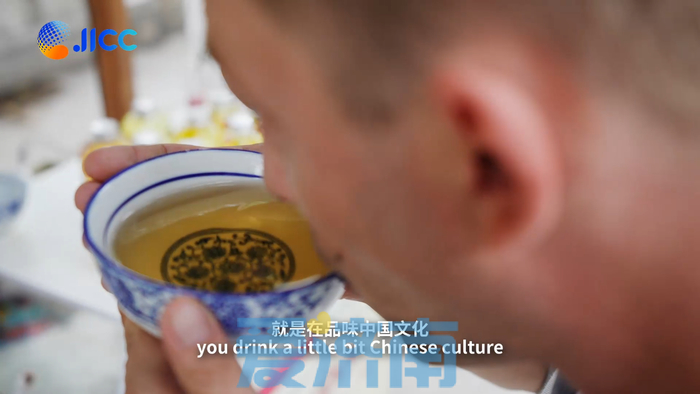
During his work, Peter gradually realized that for coffee to be better accepted by the Chinese people, efforts must be made to integrate it with local cultural traditions. Thus, he developed a beverage that perfectly blends Chinese and Western cultures.
Peter visited Yunnan, Guangdong, Shandong, and other places, tasting locally renowned green and black teas. After numerous attempts, in 2020, a new coffee product named "Jasmine Magic" was introduced to the market, combining tea leaves as the base and cold brew coffee as a mix. It gained popularity among customers. "Adding the taste of tea to coffee makes it easier for Chinese people to try coffee drinks," Peter said. According to him, blending coffee and tea not only allows people to experience the unique flavor of the collision between coffee and tea but also reflects the fusion of two different cultures. Mixing coffee and tea is an excellent way to introduce Chinese people to coffee culture and showcase tea culture to foreigners.
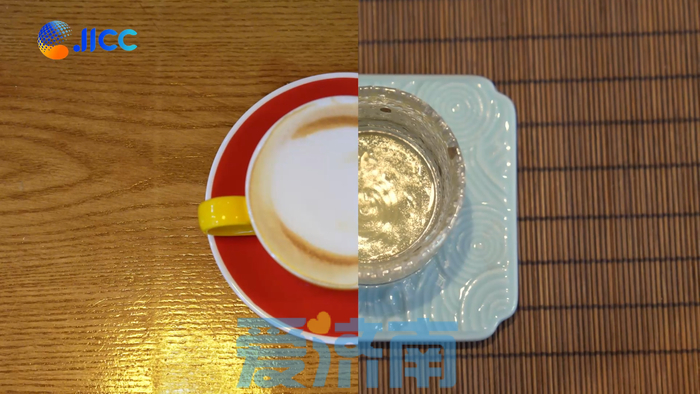
"I hope to build a bridge of cultural exchange between the East and the West with a cup of coffee." China is a unique place for this Western barista who has traveled through more than 30 countries. Just like this “Jasmine Magic” cup, it blends tradition and fashion, gradually integrating and settling.
Becoming a "New Jinan Resident
In his leisure time, strolling through the "Spring City," Peter can witness the blend of Chinese traditional culture and modern civilization, experiencing the natural charm of the integration of Chinese and foreign cultures.
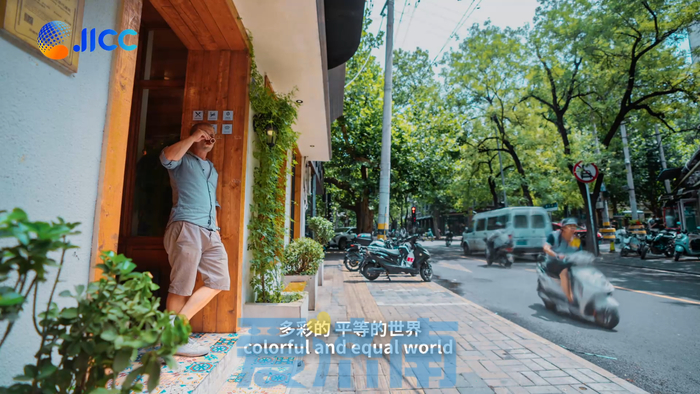
On regular days, he likes to observe the lives of ordinary Jinan residents in the community. "Jinan residents are open-minded, warm, friendly, and eager to communicate with foreigners. If you are cheerful and take the initiative to talk to people, they will accept you as part of the community. This place gives me a feeling of home; I never feel like a stranger here," he said.
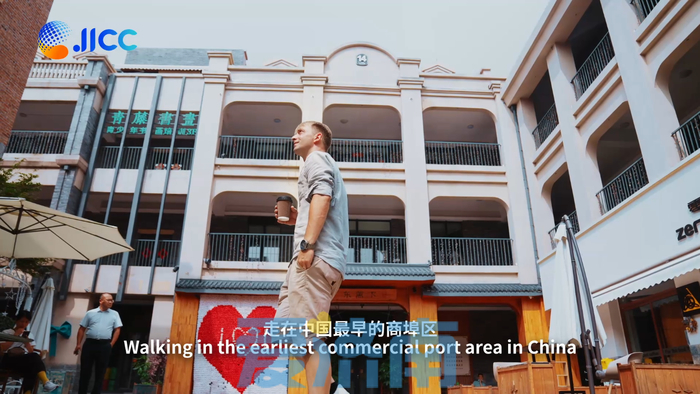
Peter has now become a "new Jinan resident." After work, he frequents bars for relaxation, strolls through night markets enjoying local snacks, and indulges in barbecue from street vendors. The neighbors know him, and he has made many friends. "Although language limits our communication, we are already very familiar with each other. In the future, I plan to learn Chinese diligently, hoping to communicate more and facilitate better cultural exchange."
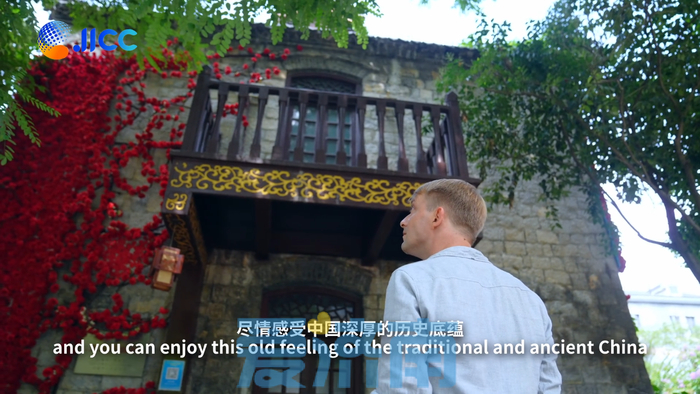
"Austrians can never do without coffee, and I will forever cherish my two homes—Jinan & Austria," expresses Peter, revealing a profound attachment to both "hometowns."
Though mountains and rivers separate China and Austria, their interaction and communication are close. In 2018, China and Austria signed a cooperation document for jointly building the "Belt and Road," leading to deepening and expanding cooperation in various fields. The friendly relations between the peoples of the two countries have penetrated deep into their hearts. Many foreign friends, like Peter, are connecting China and the world, contributing to the promotion of mutual understanding, respect, and harmonious coexistence between Chinese and foreign civilizations.
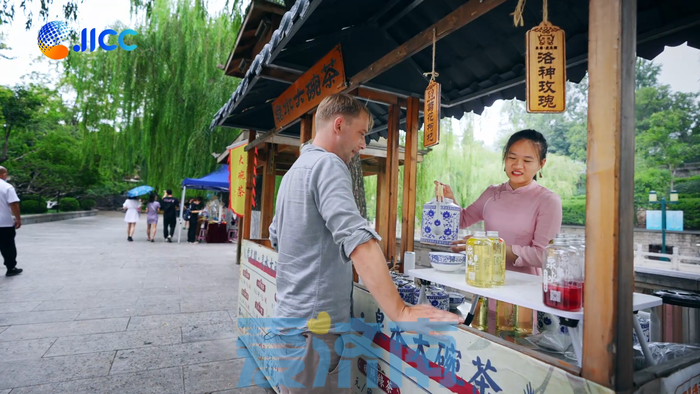
"If you ask me, how would I choose between a cup of tea and a cup of coffee? I think I like them both," says Peter. "Because the barrier between Eastern and Western cultures has long been broken. Everyone is opening their doors, enjoying a diverse, colorful, and egalitarian world where we learn, innovate, and create together."
(Li Xiaotong; Liu Xiaohan; Chen Tianyu; Hua Shan; Yuan Yuhua; Hou Yawen; Lei Youting; Lou Xinyu; Gao Yuan; Zhou Nan; Chong Yaqi; Wang Jianle; Chen Shuning; Yang Yang; Wang Jiangshan; Wang Lijun;Li Ziyue; Chen Zeyu)
